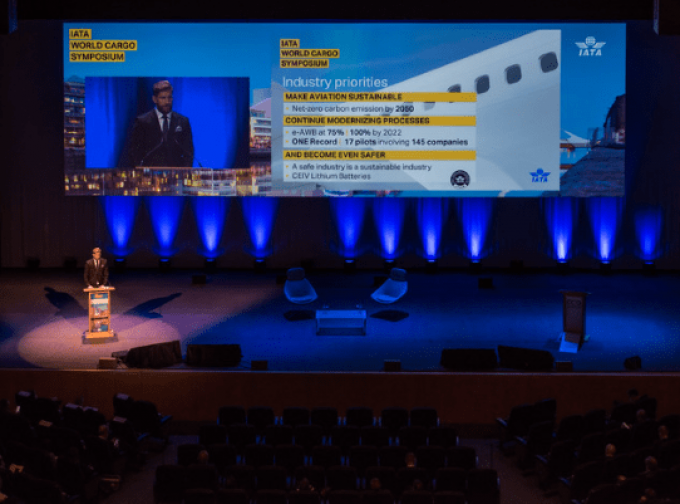The big supply chain disruptor is the regulators, say shippers
Shippers need their supply chain partners to collaborate in order to speed up processes and ...

Events are back. Nearly. This week’s World Cargo Symposium in Dublin – a recent change of venue from Istanbul – is the first major international air cargo event since the pandemic and was, well, different from normal.
And in many ways, better.
But in some ways worse. Ireland still has Covid restrictions in place: mask wearing; social distancing (no hugging, no adjacent chairs in the conference); and the challenging rule of ‘no drinking while standing up’ (insert your own joke here), which ...
Volcanic disruption at Anchorage could hit transpacific airfreight operations
Macron calls for ‘suspension’ – CMA CGM's $20bn US investment in doubt
De minimis exemption on shipments from China to the US will end in May
Forwarders stay cool as US 'liberation day' tariffs threaten 'global trade war'
Mixed response in US to 'Liberation Day', while China leads wave of retaliation
Trump tariffs see hundreds of cancelled container bookings a day from Asia
Tariffs and de minimis set air freight rates on a volatile course

Comment on this article